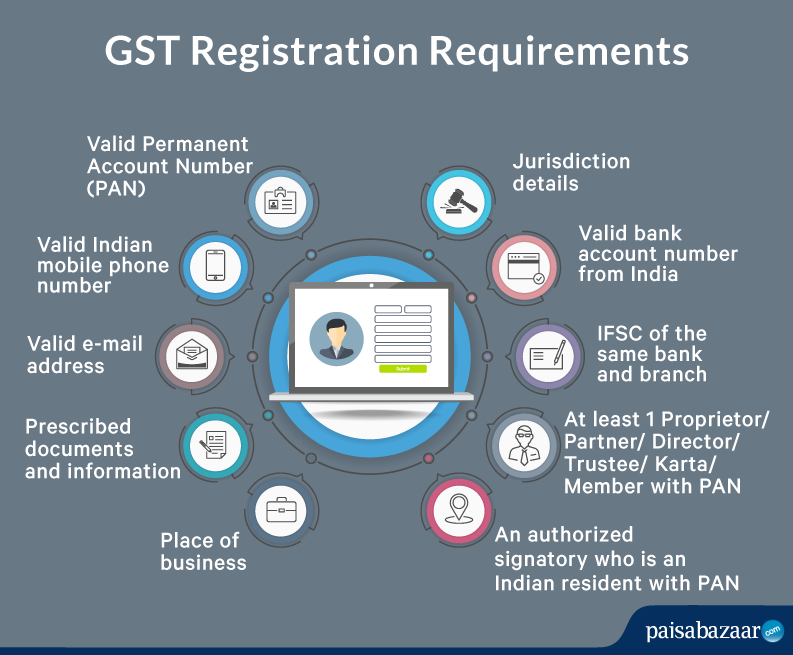How to Navigate Singapore GST Registration for Your Company
How to Navigate Singapore GST Registration for Your Company
Blog Article
The Ultimate Guide to Streamlining the GST Registration Refine and Demands for Local Business Owners

Understanding GST Basics
To comprehend the basics of the Goods and Provider Tax Obligation (GST) system, small service proprietors must initially recognize its underlying effects and principles. Under the GST routine, services are required to collect and sign up tax on part of the government, making certain transparency and conformity.
One of the vital concepts of GST is input tax debt, which enables organizations to declare credit rating for tax obligations paid on their acquisitions. This mechanism protects against the cascading impact of tax obligations and promotes performance in the tax system. Additionally, GST is a destination-based tax obligation, implying that the tax obligation is imposed at the point of usage instead than the point of origin. This makes sure fair distribution of tax obligation revenue among states based upon where the items or solutions are consumed. Recognizing these basic principles is critical for local business proprietors to navigate the complexities of the GST system and make sure conformity with the law.
Eligibility Criteria for Registration
Having established a foundational understanding of GST principles, small company owners should now meet particular eligibility criteria to wage the enrollment process. In India, entities participated in the supply of goods or services with an annual accumulation turn over going beyond Rs. 40 lakhs (Rs. 10 lakhs for unique classification states) are called for to sign up for GST. Furthermore, certain organizations such as those involved in inter-state supply of goods, informal taxed individuals, and those needed to pay tax under the reverse cost device need to register for GST irrespective of their turn over. In addition, services that were registered under the previous tax regimen (BARREL, service tax obligation, and so on) are also mandated to register under GST. Farming businesses that just supply produce out of main production are exempt from GST registration. It is vital for local business owner to very carefully examine their qualification based upon these standards to make certain compliance with the legislation and avoid any penalties for non-compliance.
Documents Required for GST Enrollment

Simplified Registration Process Actions
Following the collection and confirmation of the requisite files, the registration process for GST can be navigated via a collection of simplified actions designed to assist in reliable conformity for tiny business proprietors. Upon successful confirmation, an Application Reference Number (ARN) is provided, indicating the completion of the GST enrollment procedure. By adhering to these streamlined actions, small company proprietors can properly sign up for GST and ensure compliance with tax regulations.
Tips for Ensuring Compliance
To keep governing adherence and functional stability, persistent oversight and proactive measures are crucial in ensuring compliance with GST requirements for tiny organization proprietors. Small business proprietors find here need to stay updated with GST guidelines, filing deadlines, and any kind of modifications in tax prices to prevent penalties and maintain an excellent standing with tax authorities. One vital tip for conformity is to keep accurate and detailed documents of all purchases, consisting of costs, billings, and receipts related to GST. internet Routinely reconciling economic records with GST returns can assist in identifying and remedying any type of discrepancies immediately. Furthermore, performing regular inner audits or seeking expert aid can make sure that the business is complying with all GST regulations appropriately. It is likewise critical for little service proprietors to invest in GST-compliant accountancy software that can improve the tax obligation filing process and decrease errors. Attending GST recognition workshops or training programs can boost understanding and compliance with GST laws, eventually benefiting the organization in the lengthy run.
Final Thought
Finally, small company owners must understand the basics of GST, meet the eligibility standards, collect needed papers, and follow the streamlined enrollment process steps to make sure compliance. By simplifying the GST enrollment procedure and demands, small company proprietors can prevent charges and operate their services smoothly within the lawful structure - Singapore GST Registration. It is critical for small company proprietors to stay informed and certified with GST laws to keep a successful organization operation
Tiny service owners look here looking for GST registration should guarantee they gather and send the needed documents to finish the registration procedure efficiently. The files needed for GST registration usually include evidence of business enrollment or incorporation, FRYING PAN (Permanent Account Number) card of the organization identity, address and entity proof of the promoters/partners/directors, pictures, address proof of the location of organization, bank account declarations or terminated cheques, and permission kinds. Attending GST understanding workshops or training programs can boost understanding and compliance with GST guidelines, ultimately benefiting the organization in the long run.
By simplifying the GST enrollment procedure and requirements, little service proprietors can avoid charges and run their businesses smoothly within the lawful structure. It is crucial for little service proprietors to remain informed and certified with GST regulations to maintain a successful company procedure.
Report this page